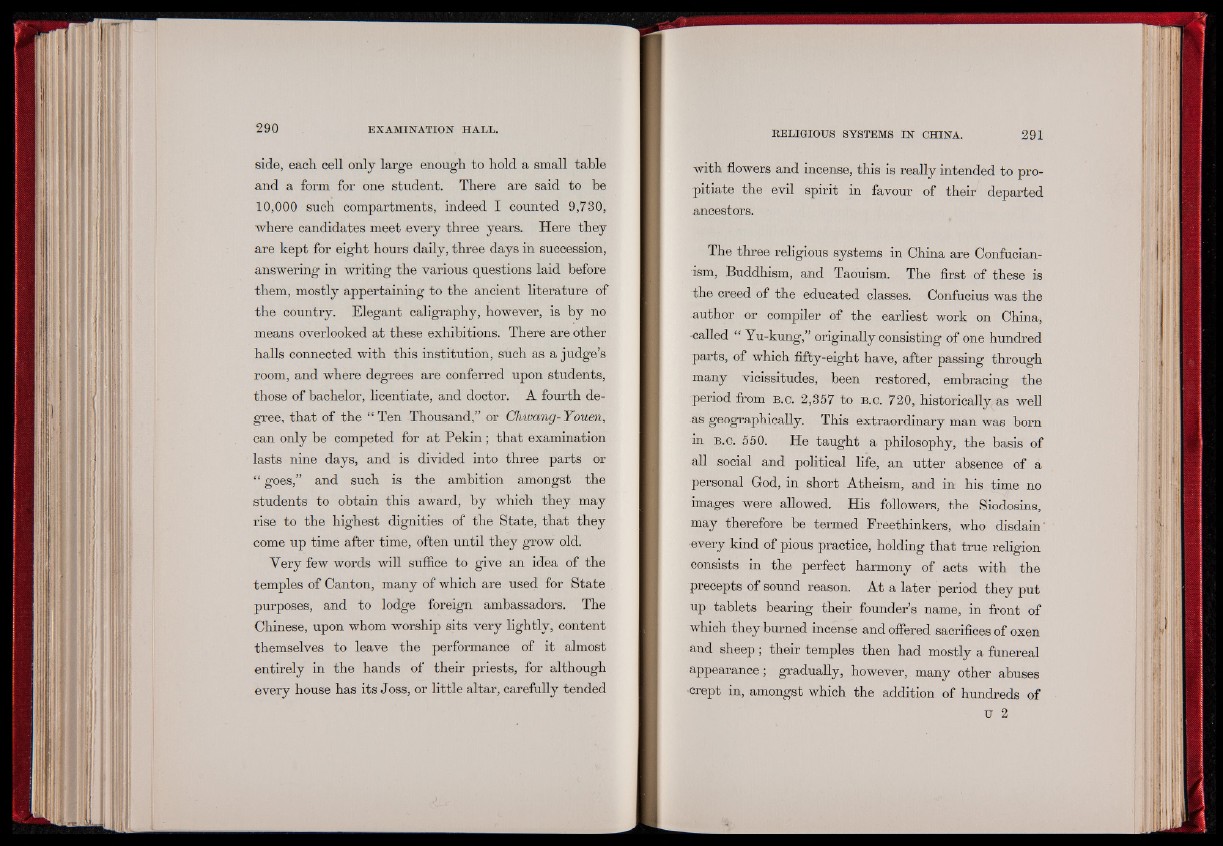
side, each cell only large enough to hold a small table
and a form for one student. There are said to be
10,000 such compartments, indeed I counted 9,730,
where candidates meet every three years. Here they
are kept for eight hours daily, three days in succession,
answering in writing the various questions laid before
them, mostly appertaining to the ancient literature of
the country. Elegant caligraphy, however, is by no
means overlooked at these exhibitions. There are other
halls connected with this institution, such as a judge’s
room, and where degrees are conferred upon students,
those of bachelor, licentiate, and doctor. A fourth degree,
that of the “ Ten Thousand,” or Chwang-Youen,
can only be competed for at Pekin; that examination
lasts nine days, and is divided into three parts or
“ goes,” and such is the ambition amongst the
students to obtain this award, by which they may
rise to the highest dignities of the State, that they
come up time after time, often until they grow old.
Very few words will suffice to give an idea of the
temples of Canton, many of which are used for State
purposes, and to lodge foreign ambassadors. The
Chinese, upon whom worship sits very lightly, content
themselves to leave the performance of it almost
entirely in the hands of their priests, for although
every house has its Joss, or little altar, carefully tended
with flowers and incense, this is really intended to propitiate
the evil spirit in favour of their departed
ancestors.
The three religious systems in China are Confucianism,
Buddhism, and Taouism. The first of these is
the creed of the educated classes. Confucius was the
author or compiler of the earliest work on China,
•called “ Yu-kung,” originally consisting of one hundred
parts, of which fifty-eight have, after passing through
many vicissitudes, been restored, embracing the
period from B.C. 2,357 to b .c. 720, historically as well
as geographically. This extraordinary man was born
in B.C. 550. He taught a philosophy, the basis of
all social and political life, an utter absence of a
personal God, in short Atheism, and in his time no
images were allowed. His followers, the Siodosins,
may therefore be termed Freethinkers, who disdain'
■every kind of pious practice, holding that true religion
consists in the perfect harmony of acts with the
precepts of sound reason. At a later period they put
up tablets bearing their founder’s name, in front of
which they burned incense and offered sacrifices of oxen
and sheep; their temples then had mostly a funereal
appearance; gradually, however, many other abuses
crept in, amongst which the addition of hundreds of
u 2